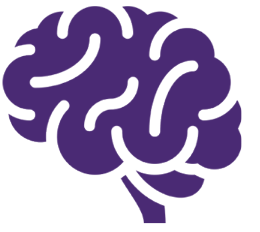Engage with QBI

Sign up to receive our monthly newsletters with our latest research updates
 Learn more about the brain through our BRAIN magazines
Learn more about the brain through our BRAIN magazines
 Join us at a QBI event helping to progress brain research
Join us at a QBI event helping to progress brain research

Join us for one of our scheduled tours to meet with our scientists
 Deep dive into QBI research by tuning into our Grey Matter Podcast
Deep dive into QBI research by tuning into our Grey Matter Podcast

Help progress vital research by volunteering for one of our clinical studies
You can help progress our research
You don't have to be a scientist to get involved with QBI. We offer a range of opportunities for everyday people to connect and progress our research and discoveries.
The foundation for all of our work is the funding we receive through a range of sources, including philanthropic donations from our generous supporters. There are many ways to give to QBI: directly, through planned giving, or holding fundraising events that entertain or challenge supporters as they dig deep to help us better understand the brain.
We also offer opportunities for students to learn directly from our inspiring researchers through lab placements, and for community members to tour our facilities and attend events. Finally, you can give one of the greatest gifts of all by volunteering for studies to advance treatments and diagnostics for brain diseases and disorders.
How you can support QBI

How you can fundraise to support our research

Leaving a gift in your will can have a profound impact
 Partner with us to improve lives
Partner with us to improve lives
Community & school programs
QBI hosts several community outreach events -and school programs to increase public awareness of the importance of basic science to inform the innovations of tomorrow.
What your donations fund
Through your support you are helping QBI solve the major neurological health challenges facing our community today

World leading research

Brightest scientific minds

Solutions to global health challenges
Brain Research Endowment Fund
Find out more Donate to research
QBI’s Brain Research Endowment Fund supports scientists exploring the unknown, which will guide new research on finding cures for diseases or improving quality of life.
Research in action
- Researchers in QBI's Zuryn laboratory have found that a microRNA, called miR-71, helps protect the body from stress caused by damaged mitochondria.
- Queensland Brain Institute (QBI) researchers will propel scientific discovery into DNA mutations, treating human movement disorders and improving stroke outcomes after securing funding from the Australian Government.
- Researchers at UQ’s Queensland Brain Institute (QBI) and the School of Biomedical Sciences have discovered a nanoscale molecular scaffold that helps protect neuronal communication.




